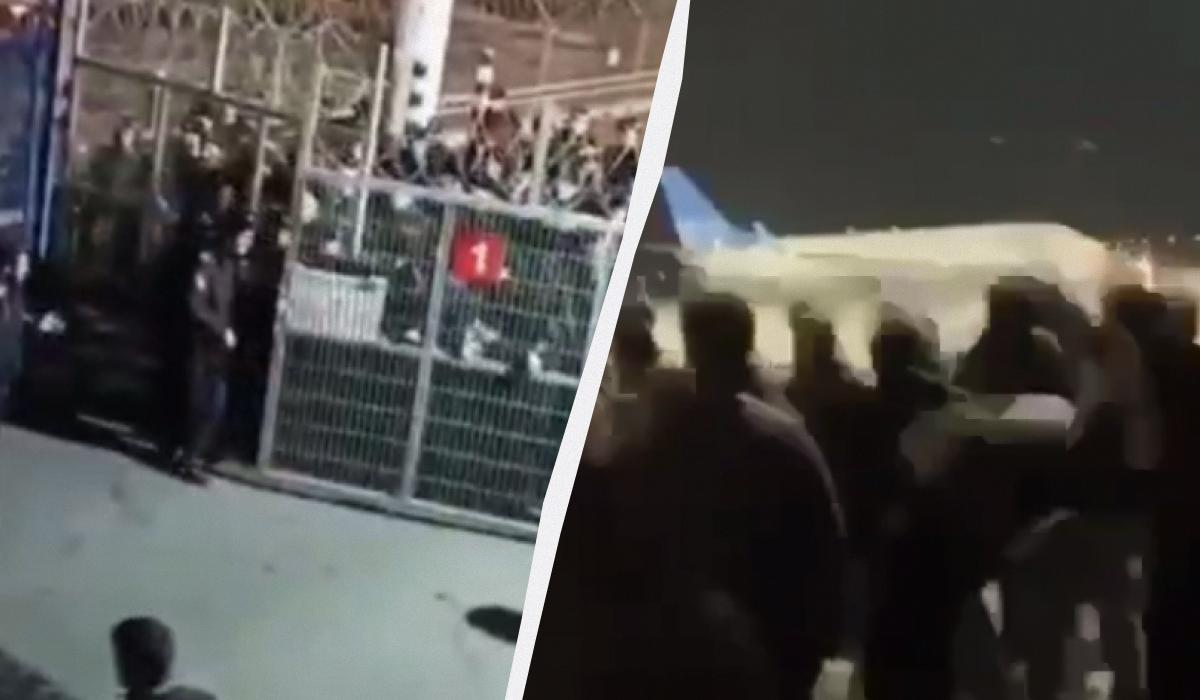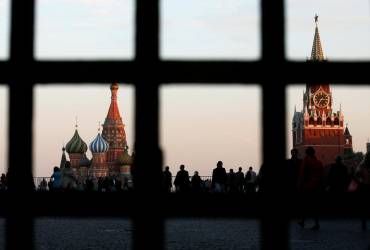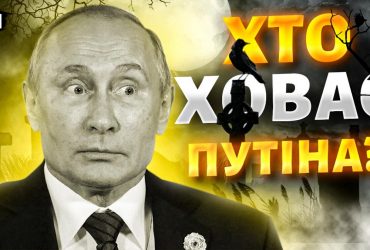It is noted that the head of the FSB of Russia, Alexander Bortnikov, and the head of the Investigative Committee of the Russian Federation, Alexander Bastrykin, are trying to take advantage of the situation.

Anti-Semitic protests in Russian Dagestan and other regions of the North Caucasus indicate growing inter-ethnic and inter-religious tensions in Russia. The Kremlin appears to have left it to regional authorities to formally respond to the demonstrations.
Analysts at the Institute for the Study of War noted that the head of the Republic of Dagestan Sergei Melikov, the head of the Karachay-Cherkess Republic Rashid Temrezov and the head of the Kabardino-Balkarian Republic Kazbek Kokov on October 29 called on residents of the North Caucasus to refrain from aggressive actions and stop attempts to incite ethnic hatred. The Coordination Center for Muslims of the North Caucasus specifically condemned the anti-Semitic actions that followed the first demonstrations on the evening of October 28.
Dagestan’s Minister of National Policy Enrik Muslimov and Minister of Youth Affairs Kamil Saidov arrived at the airport on October 29 to communicate with the demonstrators, but, as it turned out, were unable to dissuade them from entering the premises. Melikov later called the demonstration a violation of the law, and the Main Directorate of the Ministry of Internal Affairs for the North Caucasus Federal District warned that it was illegal to hold demonstrations without prior government permission.
The Kremlin may have a hard time reassuring voters that the situation is under control and convincing Jewish audiences that Russia’s Jewish minorities are safe, despite its efforts to portray Russia as a religiously tolerant country. The press secretary of the Chief Rabbinate of Russia in Dagestan, Ovadya Isakov, said on October 29 that hundreds of Jewish families in Dagestan should leave the republic and Russia, since “Russia is not salvation,” since “there were pogroms in Russia too.”
On October 25, Russian President Vladimir Putin, at a meeting with leaders of a number of Russian religious organizations, including leaders of Judaism and Islam, called Russia a beacon of religious harmony. The Kremlin is likely seeking to portray Russia as protective of its religious minorities to appeal to Muslim and Jewish audiences amid the war between Israel and Hamas and to downplay tensions caused by the ultranationalist Russian Orthodox Church.
Russian ultranationalists have expressed fears that anti-Semitic demonstrations will spread from Dagestan and the North Caucasus to other regions of Russia. Some Russian ultranationalists blamed the early rumors on a Ukrainian information operation, but others expressed deep concern that anti-Semitic protests could spread and spark anti-Russian activity.
One Russian milibloger rhetorically asked whether there would be “pogroms” in Moscow, and said that demonstrations could lead to a situation similar to the 1990s killings of ethnic Russians in Tajikistan and Chechnya. Russian ultranationalists may resort to harsh criticism of the Russian authorities’ response to the protests, as several Russian sources have expressed dissatisfaction with the official authorities’ lackadaisical response so far.
The head of the Russian FSB, Alexander Bortnikov, and the head of the Investigative Committee of Russia, Alexander Bastrykin, may be trying to use the heightened ethno-religious tensions in Russia to regain the favor of the Russian president. Russian milibloggers point out that officials have failed to implement Putin’s 2012 policy to encourage migration to Russia to solve the country’s demographic problems.
Milbloggers complain that Putin’s policies, although well-intentioned and correct, have failed to increase the birth rate and reduce mortality to the required level, and have failed to properly integrate migrants into Russian society. They argue that these policies will not change as long as the old politicians of Putin’s generation remain in power. One of the milbloggers directly called Bortnikov and Bastrykin “trusted persons” who should “fly into Putin’s orbit and personally convince him of the need to change migration policy.”
This mention of Bortnikov and Bastrykin implies that they have fallen out of favor with Putin, and presents them as the people the Russian president needs to resolve recent ethno-religious tensions in Russia involving migrants from Central Asia. The Kremlin has typically been slow to respond to events that highlight ethno-religious tensions, including recent complaints of migrant attacks on Russian children, fueling anger among Russian ultranationalists at the Russian government for inaction that further exacerbates ethno-religious tensions. Bortnikov and Bastrykin may try to present themselves through the Russian information space as people capable of breaking this circle.
Unrest in Dagestan – what is known
Hundreds of demonstrators in Dagestan stormed the Makhachkala airport, blocked the runway and tried to board a plane arriving from Israel on the evening of October 29 after rumors spread that Russian authorities were planning to resettle “Israeli refugees” in Dagestan and other regions of the North Caucasus. On the evening of October 28, hundreds of demonstrators gathered outside a hotel in Khasavyurt to search for supposed “Israeli refugees” based on similar rumors. On the night of October 28-29, unknown persons set fire to a Jewish cultural center under construction in Nalchik in the Kabardino-Balkarian Republic.
The rumors apparently originated from a local Dagestani Telegram channel, which claimed that “Israeli refugees” were staying at a Khasavyurt hotel on October 28 and announced planned demonstrations that took place a few hours later in the center of Makhachkala.
The Telegram channel posted a call for residents of Makhachkala to demonstrate at the airport on the night of October 28-29, as well as tracker data for the plane from Israel in anticipation of its arrival on the night of October 29. During the protest at the Makhachkala airport, where demonstrators temporarily blocked the exit of all persons present at the airport. Demonstrators also checked identification documents for Israeli citizens, but there were no reports of them finding any.
Demonstrators chanted “death to the Jews” and sometimes clashed with airport security officers. Soldiers of the National Guard of the Russian Federation led demonstrators out of the airport.
The Telegram channel that spread the rumors has been closed, which could be the first sign that Russian authorities are actively trying to stop the continuation of anti-Semitic demonstrations.










